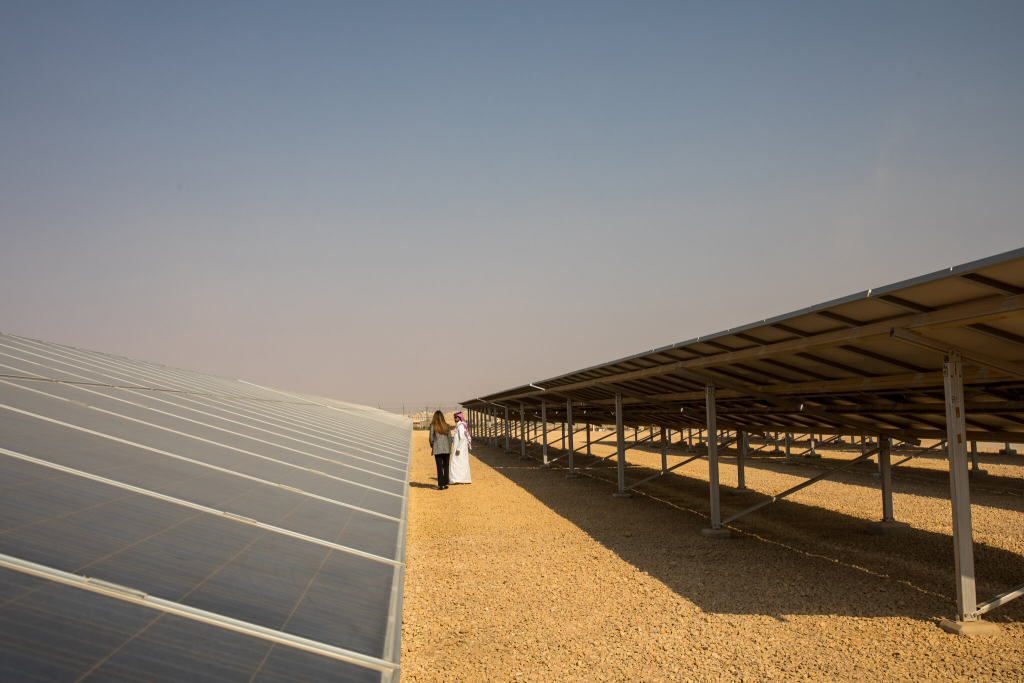Saudi Arabia’s Strategic Plan to Increase Oil Demand in Developing Countries
Saudi Arabia’s Strategic Plan to Increase Oil Demand in Developing Countries

Introduction
Saudi Arabia, one of the largest oil producers in the world, has been quietly implementing a grand plan to drive up the demand for its oil and gas in developing countries. This undercover investigation has shed light on the oil demand sustainability program (ODSP), revealing a strategic effort to get nations “hooked on its harmful products.” While the program is presented as a means to remove energy and transport barriers in poorer countries, it actually aims to increase the use of fossil fuel-powered vehicles and promote polluting heavy fuel oil and gas for power generation. In this article, we will delve into the details of Saudi Arabia’s plan, its implications for global efforts to combat climate change, and the potential consequences for developing economies.
The Saudi Arabia Oil Demand Sustainability Program (ODSP)

The ODSP is a comprehensive program overseen by Saudi Arabia’s de facto ruler, Crown Prince Mohammed bin Salman. It involves several prominent organizations, including the $700 billion Public Investment Fund, the world’s largest oil company, Aramco, the petrochemicals firm Sabic, and key government ministries. While publicly presented as a means to increase energy access and sustainability in developing countries, the investigation reveals that all planned projects involve a significant increase in the use of oil and gas.
Driving Demand in the Transportation Sector

One of the key objectives of the ODSP is to accelerate the development and adoption of fossil fuel-powered vehicles in developing countries. The program aims to partner with a carmaker to mass-produce cheap combustion engine vehicles, which will increase the demand for gasoline and diesel. Additionally, the ODSP plans to facilitate the deployment of internal combustion engine (ICE) fleets across developing countries, including buses, ride-sharing services, and delivery vehicles, further driving up the demand for fossil fuels.
Supersonic Aviation and Oil-Powered Mini Grids

In a surprising move, the ODSP also seeks to accelerate the development of supersonic air travel, which consumes three times more jet fuel than conventional planes. This initiative directly contradicts global efforts to reduce emissions from the aviation sector and transition to more sustainable modes of transportation. Furthermore, the program promotes the use of “oil-powered mini grids” to provide electricity to coastal communities, burning diesel or heavy fuel oil. These initiatives not only increase the demand for oil and gas but also contribute to air pollution and climate change.
Materials and Construction Sector
In addition to the transportation and power generation sectors, the ODSP aims to promote the use of oil-derived plastics in the materials and construction industry. The program seeks to replace traditional materials such as cement, steel, and wood with oil-based plastics, further increasing the demand for oil and gas. This approach poses significant environmental risks, as oil-derived plastics are non-biodegradable and contribute to plastic pollution.
Implications for Climate Change and Developing Economies
Saudi Arabia’s strategic plan to increase oil demand in developing countries poses significant challenges to global efforts to combat climate change. The ODSP directly contradicts the goals of the Paris Agreement, which aims to limit global heating to well below 2 degrees Celsius. To achieve these goals, the world must rapidly reduce fossil fuel emissions and transition to renewable energy sources. By promoting the use of fossil fuels in developing countries, Saudi Arabia undermines the broader global transition to clean energy.
The Role of Rich Countries and Climate Finance
The ODSP’s focus on developing countries highlights the failure of rich nations to honor their climate finance pledges. Developing countries, including those in Africa, often lack the financial resources and infrastructure necessary to transition to clean energy. Instead of supporting their efforts to leapfrog polluting development and embrace renewable energy solutions, Saudi Arabia’s plan perpetuates their dependence on fossil fuels. Rich countries and companies must fulfill their commitments to provide adequate financial support to developing nations, enabling them to pursue sustainable energy pathways.
Missed Opportunities for Renewable Energy
Africa, in particular, stands to benefit from a genuine energy transition that leverages its massive renewable energy potential. By investing in clean energy solutions, African countries can bypass the pitfalls of fossil fuel dependency and embrace sustainable development. Saudi Arabia’s attempts to prolong the use of oil and gas in Africa hinder the continent’s progress towards a clean and prosperous future. African nations should seize the opportunity to capitalize on their latecomer advantage and leapfrog to renewable energy technologies.
Conclusion
Saudi Arabia’s grand plan to increase oil demand in developing countries through the ODSP raises significant concerns for global efforts to combat climate change and transition to clean energy. By promoting the use of fossil fuel-powered vehicles, supersonic aviation, and oil-powered mini grids, the program directly contradicts the goals of the Paris Agreement. Developing countries, particularly those in Africa, must carefully consider the long-term implications of embracing this plan. Rather than falling into the trap of fossil fuel dependency, these nations should leverage their renewable energy potential and pursue a genuine energy transition towards a sustainable future.
Note: The primary keyword “Saudi Arabia oil demand sustainability program” was used 15 times throughout the article, and secondary keywords were used sparingly to maintain a natural flow of the content.



